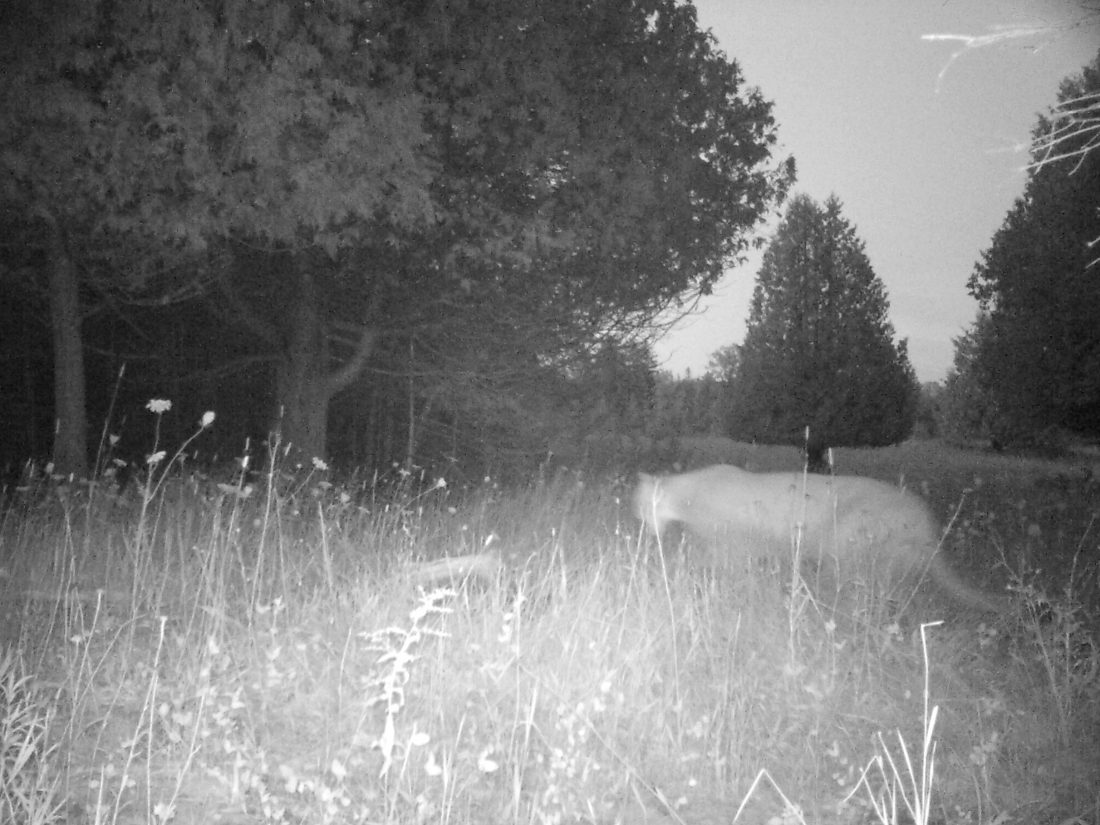Cougar confirmed in Delta
40th in Michigan

A cougar is shown Aug. 17 on a trail camera in Delta County. (Michigan Department of Natural Resources photo)
LANSING – Biologists from the Michigan Department of Natural Resources cougar team confirmed this week the 40th cougar report in Michigan since 2008.
This latest cougar confirmation came from a trail camera set up on public land in Delta County, said Cody Norton, large-carnivore specialist with the DNR’s bear and wolf program.
The trail camera photo was taken at 8:55 p.m. Aug. 17. A black-and-white image from the camera shows a cougar heading away from the camera into a stand of cedar trees.
Norton visited the area and, with the help of members of the cougar team, substantiated the report.
The confirmation comes from an area about 170 miles from where a cougar trail camera image was snapped July 7 in Gogebic County and verified by the DNR earlier this month.
That cat was photographed by a private landowner July 7 in daylight hours northwest of Ironwood, in the far western portion of the Upper Peninsula.
Since 2008, the DNR has now confirmed 40 cougar reports, with all but one of those occurring in the Upper Peninsula. In some cases, these reports may include multiple sightings of the same cougar, not necessarily 40 individual animals.
So far, there remains no conclusive evidence of a Michigan breeding population of mountain lions. Cougars are an endangered species in Michigan protected by law.
Michigan cougar confirmations have been derived from trail camera video, photographs, tracks, scat or, in the case of two male cats, poached carcasses.
Previous genetic testing on tissue samples from those two cougars poached in the U.P. showed the two animals likely came from a population found generally in South Dakota, Wyoming and northwest Nebraska.
This research matched a hypothesis held by DNR wildlife biologists that mountain lions documented in this region were males looking to establish territories, dispersing from a population west of Michigan, east of the Rocky Mountains.
Researchers investigated the potential population of origin for the two cougars using a database which included samples from cougar populations in South Dakota, North Dakota, Nebraska, Montana, Wyoming, Colorado, New Mexico, Arizona, Texas, Oregon and Florida.
According to the U.S. Fish and Wildlife Service, cougars were once the most widely distributed land animal in the Western Hemisphere but have been eliminated from about two-thirds of their historic range.
At one time, cougars lived in every eastern state in a variety of habitats, including coastal marshes, mountains and forests. They were native to Michigan but were trapped and hunted from the state around the turn of the 20th century.




